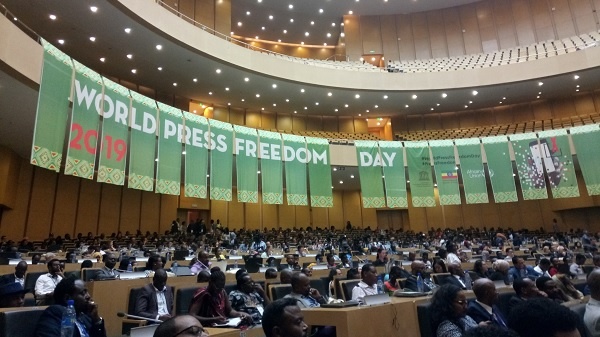
(Fojo Media Institute) – As part of the Ethiopia Media Reform project, funded by the Swedish Embassy in Ethiopia, Fojo has produced two new publications in support of the current media reform process in Ethiopia:
- Handbook: “Ethiopia: Reflections on Media Reform”
- Report: “Social media and Journalism in Ethiopia, setting the scene for reform”
Handbook: Ethiopia: Reflections on Media Reform
The publication aims to provide critical reflection and useful tips and tools for Ethiopian journalists and anyone who has an interest in media reform during times of change and focus on broad media reform themes such as press freedom, self-regulation, media business models, media councils, gender representation in the media, and the need for tools and resilience in a digitalized world. While most of the contributors to this booklet are Ethiopian, there are also journalists and experts from other African countries like Zimbabwe, Kenya, South Africa and Sweden. The book was commissioned by Fojo project manager, Marika Griehsel and edited by Heather Robertson (Change Routes), translated from English to Amharic by Biniam Getaneh and designed by Izzat Amanuel.
Photographer Michael Tewelde has taken the photos to both publications, most of them during the conference ”Promoting journalism and democracy in Practices – Media reform in a time of change”, 9–10 April at UNECA, Addis Ababa, arranged by Fojo Media Institute, The Swedish Embassy in Ethiopia and Nubia Media and Communications.
“Media reform is not about reforming the laws. It is about reforming the heart of the culture of journalism as well as the relation between media, government, civil society and international stakeholders. It is about producing journalism that is based on truth-seeking professionalism”, says Lars Tallert, Head of Policy and International Development at Fojo Media Institut.
Social media and Journalism in Ethiopia, setting the scene for reform
The report, with a journalism and freedom of speech perspective should be seen as an introduction to how social media influences sustainable, independent news publishing, freedom of speech and growth of democracy in Ethiopia.
This against the backdrop of an intensified international debate and actions taken across the world to come to terms with social media platforms including the use of them by undisclosed political forces.
“Social media is the dark horse. Social media has, in a few years, turned the political landscape in Ethiopia on its head not only as a means of mobilizing people, but also as a means of spreading rumors, hate speech and disinformation.” Quote from the Report
Christer L. Pettersson has prepared this report for Fojo Media Institute, Sweden with the assistance of Nigussu Solomon, in collaboration with Nubia Media and Communications, Ethiopia.
Source: Fojo Media Institute
